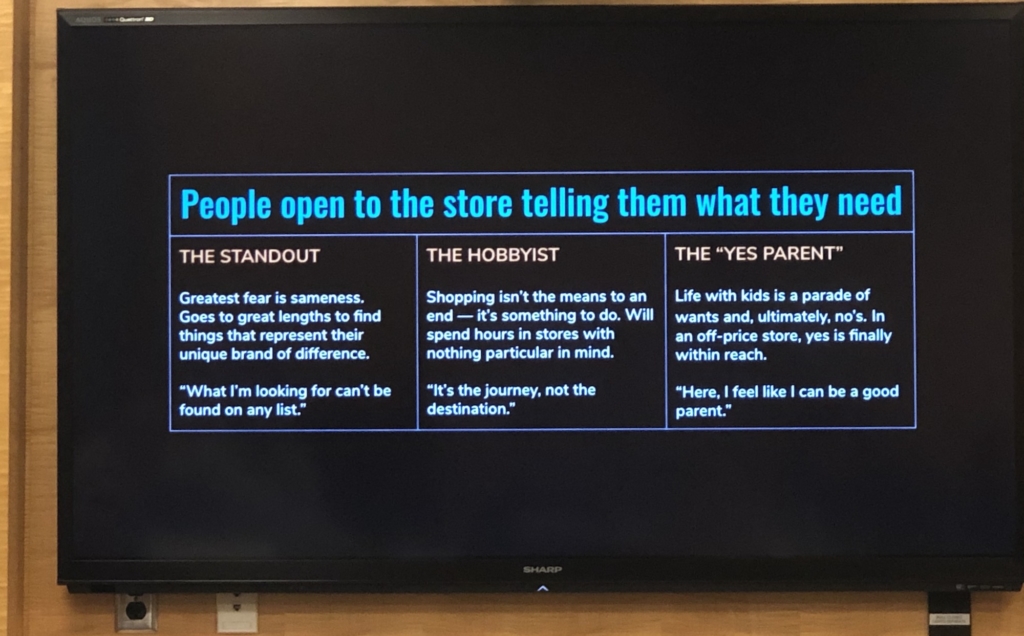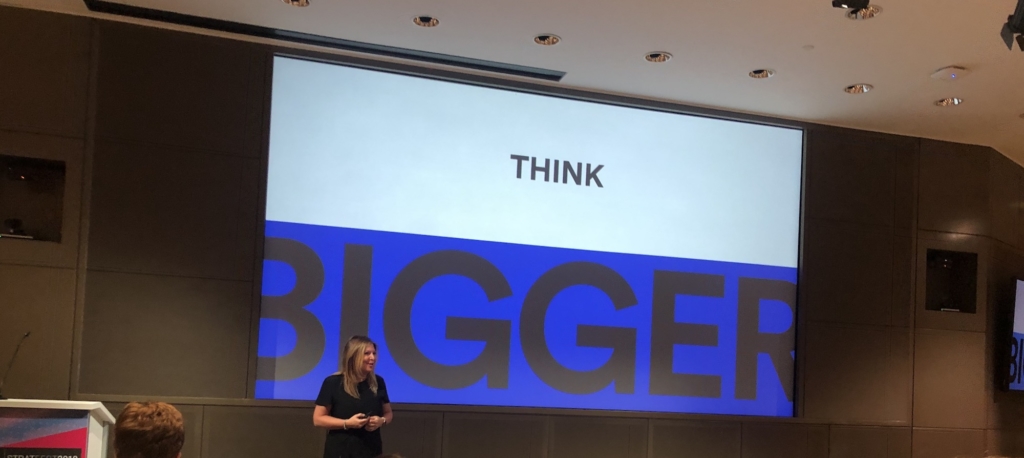We recently had the opportunity to attend the 4As StratFest in New York. The multi-day event brought together strategists and planners from agencies across the country. The theme was “Power to the People”, focusing on consumer-centricity for brands. There was a ton of great information to takeaway. Here are three that really resonated for us.
TAKEAWAY 1 – Data and assumptions often lead us to forget about people
Rishad Tobaccowala, Chief Growth Officer at Publicis, was the first presenter and became a tough act to follow. As one of the top people in one of the largest agency companies in the world you would expect him to espouse on the value of data and all the amazing things that can be done with bigger and better data. Not so. He spoke about hiding behind data and data not always being the beacon of truth. Data can justify a lot of things. Data makes us group people of diverse mindsets into convenient profiles. But what data doesn’t always do is help us understand what truly motivates people. There are a few things about people that help us understand how many people behave and choose:
- People want to grow
- People want purpose and meaning
- People don’t like change
Solely relying on data will kill the soul of a brand. So question things. Ask: Is what we’ve been taught actually true?”, “Is this thing being presented to me as fact, in fact, factual?”, “Is the information we are receiving from our own bubble that we’re living in or objective?”
As we help our clients build their brands we need to be there for them beyond what “marketing” is typically thought of but rather how can the entire experience build trust for the brand.
He has a book coming out in 2020 titled, “Restoring the Soul of Business: Staying Human in the Age of Data.” We’ll be reading it.
takeaway 2 – brilliant ideas happen because of the collision of hunches
Whether it was Paris in the 1920’s or Andy Warhol’s The Factory, many brilliant, creative ideas were the result of talented people coming together in a shared environment. This opportunity for the collision of hunches help provide the lifeblood of great ideas. In a session lead by Ed Cotton he shared a video about where good ideas come from:
We don’t need to be lone wolf idea saviors that swoop in with the brilliance. We need to be open and willing to share. Experience and curiosity build the reservoir from where we pull ideas from. Stimulus gets the imagination going. And we shouldn’t be afraid to incubate an idea for awhile until its ready.
For many, ideas are precious in that they reveal something about the person who has them. A way of thinking, a vulnerability, a desire, or even a confession. So letting an idea become malleable opens us up. All it takes is a spark to ignite something much larger so don’t be afraid to put your sparks out in the places that they may mingle with other sparks.
takeaway 3 – we need to ask better questions in order to get a better understanding of our audiences
In a workshop led by a team from McGarrah Jessee titled “Mindsets over Matter: Evolving Personas for Inclusivity and Reduced Bias in the Brief” it became obvious that we need to ask better, more challenging questions to have a true understanding of what drives the people in our personas. Sometimes reframing a question we constantly use a bit differently can get us thinking differently. Instead of asking “What is our audience thinking/feeling/doing?”, the question shouldn’t stop there. We should really be trying to understand “What would they do in a more favorable situation?” and ” How can we support making that a reality?” Some may see that as semantics compared to asking “What do we want them do?” But those few words included and the question framed differently force us into trying to understand people’s realities and enables us find the points of empathy where we can help.
Rigidity leads to generic outcomes. It makes us fall back on routine tasks of filling out a brief that is basically just fill-in-the-blanks. We need to challenge our assumptions, challenge our point-of-view, and try to see the problems we are trying to solve through the realities of the people we are trying to solve them for. Our thinking shouldn’t force people into our world but rather drive us to understand their world.
strategy can lead the way
Strategy isn’t inherently good. But when channeled for good, strategy can be a driving force for connection. When you attend an event that is filled with people focused on strategy for a living you are going to be amongst thinkers. What was great about the 4As StratFest is that these thinkers help drive us all to do better, more thoughtful work, that is meaningful to our clients’ business, and never forgets about the humanity needed to succeed in our technology obsessed world.

